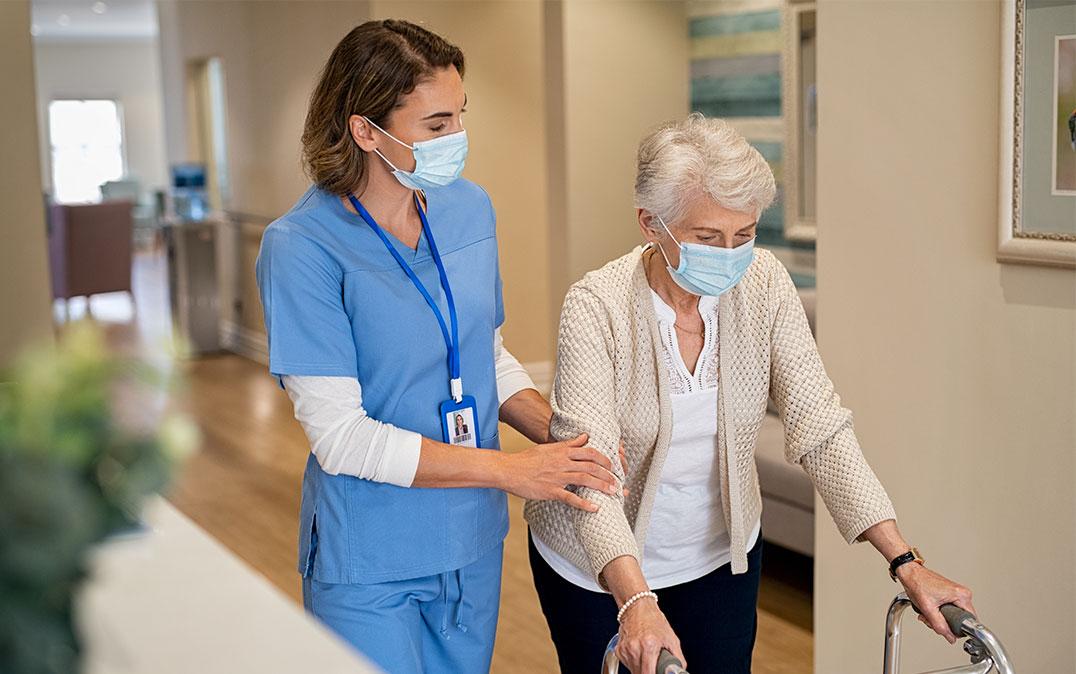Research News
Caring for Those Who Care: Support Needed for Workers in Nursing Homes
 Image by Rido/Shutterstock
Image by Rido/Shutterstock
Researchers from the University of Tsukuba find high stress levels in caregivers during the COVID-19 pandemic
Tsukuba, Japan—Caregivers are particularly important during a public health crisis. Now, researchers from Japan have found that caregivers working in nursing homes experienced high levels of psychological distress during the COVID-19 pandemic.
In a study recently published in Dementia and Geriatric Cognitive Disorders, researchers from the University of Tsukuba have revealed that caregivers working in nursing homes in Japan experienced high levels of stress during the COVID-19 pandemic, as well as an increased risk of depression and anxiety.
During the COVID-19 pandemic, nursing homes have been particularly vulnerable to outbreaks of the virus. Caregivers working in such environments have been faced with the exceptional challenge of attempting to keep their clients safe while also protecting themselves from illness. As a result, many healthcare workers have experienced psychological distress and concern regarding the potential deterioration of their mental health. However, little is known about the factors that have influenced mental health in this population, which the researchers at the University of Tsukuba aimed to address.
"The support needs of caregivers can vary according to a number of variables" says lead author Professor Tetsuaki Arai. "Because the COVID-19 pandemic has created a particularly challenging workplace environment for caregivers in nursing homes, we decided to examine the factors that have influenced mental health in these workers."
To do this, the researchers conducted a large-scale web-based survey of caregivers working in nursing homes in Ibaraki prefecture, Japan, during the COVID-19 pandemic. In addition to collecting demographic information, detailed workplace characteristics, and indices of prejudice and discrimination towards healthcare workers, they assessed depression and anxiety using a self-administered rating scale for hospital workers.
"The results were illuminating," explains senior author Dr. Takumi Takahashi. "We found symptoms of depression or anxiety in more than half of the participants."
Furthermore, the rate of anxiety was associated with specific occupation, and the risk of anxiety and depression in the workers increased when there were mental health problems among family members who also cared for the residents of the nursing home. Added to this, restrictions associated with the COVID-19 pandemic, such as limitations on travel and reduced support services, were related to increased neuropsychiatric symptoms in nursing home residents with dementia. Furthermore, patients with dementia have been found to have lower comprehension regarding safety initiatives such as social distancing and wearing of facemasks. These factors likely added to the burden of care for healthcare workers in nursing homes.
"Our findings indicate that caregivers in nursing homes did not receive adequate support despite the significant impact of the COVID-19 pandemic on patient needs." says Professor Arai.
Thus, these survey results highlight the necessity of specialized support for health workers to adequately prepare them for times of high patient needs.
###
This research received no specific grant from any funding agency, commercial, or not-for-profit sectors.
Original Paper
The article, "Mental health of caregivers working in nursing homes during the COVID-19 pandemic" was published in Dementia and Geriatric Cognitive Disorders at DOI: 10.1159/000524953
Correspondence
Professor ARAI Tetsuaki
Faculty of Medicine, University of Tsukuba
Assistant Professor TAKAHASHI Takumi
University of Tsukuba Hospital
Related Link
Faculty of Medicine
University of Tsukuba Hospital




